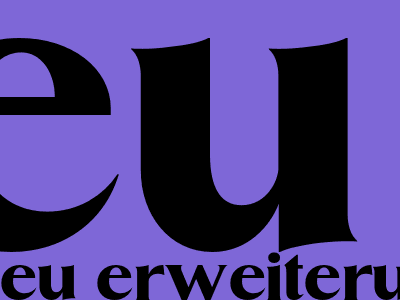
EU Enlargement and the Western Balkans: A Commentary
Introduction
The European Union's enlargement process has been a key driver of peace and stability in Europe since the end of the Cold War. The EU has expanded eastward to include former communist countries, and has also welcomed new members from the Mediterranean region. The Western Balkans is the next region expected to join the EU, and enlargement negotiations are currently underway with several countries in the region.
The Western Balkans and the EU
The Western Balkans is a region of southeastern Europe that includes Albania, Bosnia and Herzegovina, Kosovo, Montenegro, North Macedonia, and Serbia. The region has a long history of conflict and instability, and the EU's enlargement process is seen as a way to promote peace and stability in the region.
The EU has set out a number of criteria that countries must meet in order to join the bloc. These criteria include: * A functioning democracy * A market economy * The rule of law * Respect for human rights
The Enlargement Process
The enlargement process is a complex and lengthy one. It typically takes several years for a country to complete the process and join the EU. The process involves a number of steps, including: * Application for membership * Negotiations on the terms of membership * Ratification of the accession treaty by the country and all EU member states
The Challenges of Enlargement
The enlargement process is not without its challenges. One of the biggest challenges is the issue of corruption. Corruption is a widespread problem in the Western Balkans, and it is a major concern for the EU. The EU has made it clear that countries must make progress in fighting corruption before they can join the bloc.
Another challenge is the issue of ethnic tensions. The Western Balkans is a region with a history of ethnic conflict, and the EU is concerned that enlargement could lead to renewed tensions. The EU is working with countries in the region to promote reconciliation and cooperation.
The Benefits of Enlargement
Despite the challenges, there are also a number of benefits to EU enlargement. Enlargement can help to promote peace and stability in the Western Balkans, and it can also help to boost economic growth in the region. The EU is the world's largest single market, and enlargement will give countries in the Western Balkans access to this market.
The Future of EU Enlargement
The future of EU enlargement is uncertain. The EU has not set a timeline for enlargement, and it is not clear when the Western Balkans countries will be ready to join the bloc. However, the EU remains committed to enlargement, and it is expected that the Western Balkans will eventually become members of the EU.
Conclusion
The EU's enlargement process is a complex and challenging one, but it is also a key driver of peace and stability in Europe. The Western Balkans is the next region expected to join the EU, and enlargement negotiations are currently underway with several countries in the region. The EU has set out a number of criteria that countries must meet in order to join the bloc, and these criteria include: a functioning democracy, a market economy, the rule of law, and respect for human rights. The enlargement process is not without its challenges, but there are also a number of benefits to enlargement, including: promoting peace and stability, boosting economic growth, and giving countries access to the EU's single market. The future of EU enlargement is uncertain, but the EU remains committed to enlargement, and it is expected that the Western Balkans will eventually become members of the EU.